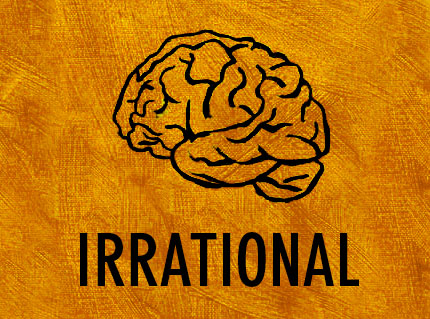
We’ve all been there. Sifting through data and reports, posing scenarios, choreographing experiences in our heads, trying to make rational sense as to why consumers do what they do. The problem with these observations is that we rarely include all of the outside social factors that influence behaviors.
Let’s look at ourselves for a minute. As consumers we often purchase for subconscious irrational reasons, but backup our behavior with rational reasoning.
The purely rational mind does not exist.
Francois Gossieaux of Emergence Marketing has some insightful thoughts on this topic:
Our buying behavior is very much influenced by our social behavior, which in turn is mostly determined by hardwired reflexes. That is what makes it so hard to predict what will sell and what will not. We buy things because they make us look cool, intelligent or well informed. We buy things because our mirror neurons drive us to want to imitate others. We buy things even though we know they are not good for us, and we do not buy things that are proven to have a positive effect on our condition. We buy things without the latest bells and whistles because we hate change. We buy things because we want to belong.
He goes on to say,
Sure, we buy things based on recommendations from others, and avoid things that people badmouth. But it goes further than that – we buy things based on the behavior of the people who bought the same product, and more importantly based on the behavior of others who are observing the original buyers. That is true for personal fashion items as well as for enterprise software solutions.
In the physical marketplace, social factors have been historical extremely difficult to gauge. But as big chunks of marketplace collide with the online world, and social networks become a fundamental part of a connected way of life, I wonder if it will be any easier to connect the dots.
Facebook Connect is still in it’s infancy, but Razorfish and others think that it is a step towards creating a portable social graph, which could give us some clues as to how social connections affect direct buying behaviors.
—
What do you think?


I think recent research in consumer behavior is shifting the way marketers will aim to understand the consumer, by focusing more attention on our irrational nature. I recently read two interesting books related to irrational consumer behavior: Predictably Irrational and Buyology. It turns out that the economists were wrong in a way. Economics is based on humans acting rationally in their purchase decisions, but when it comes to deciding how to spend our money, most of us are far from rational.